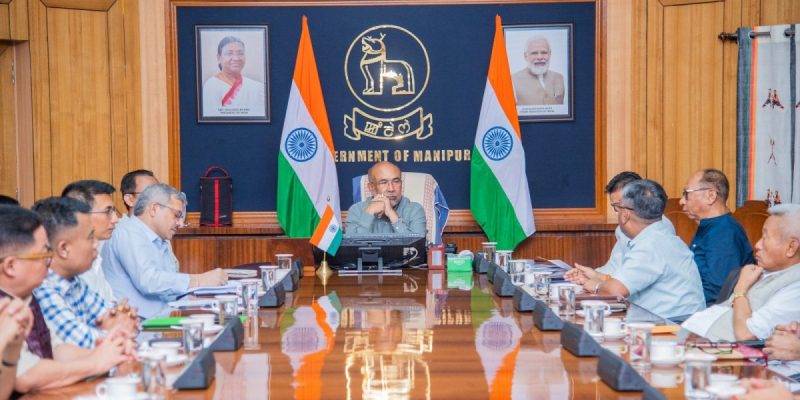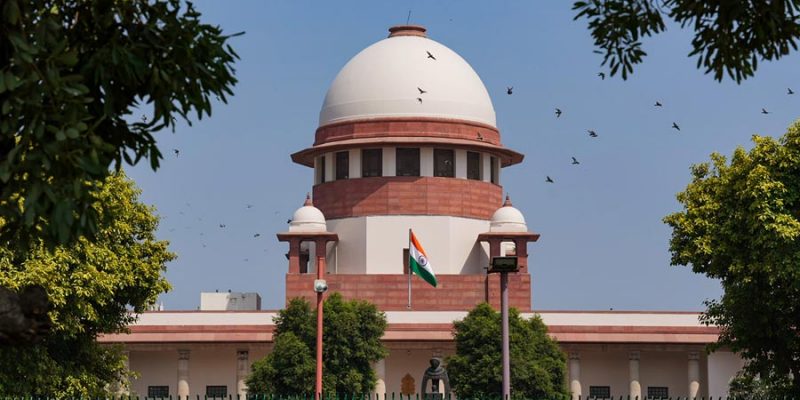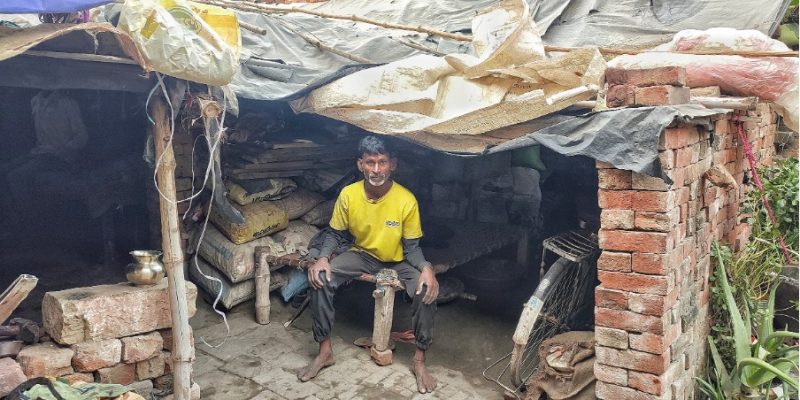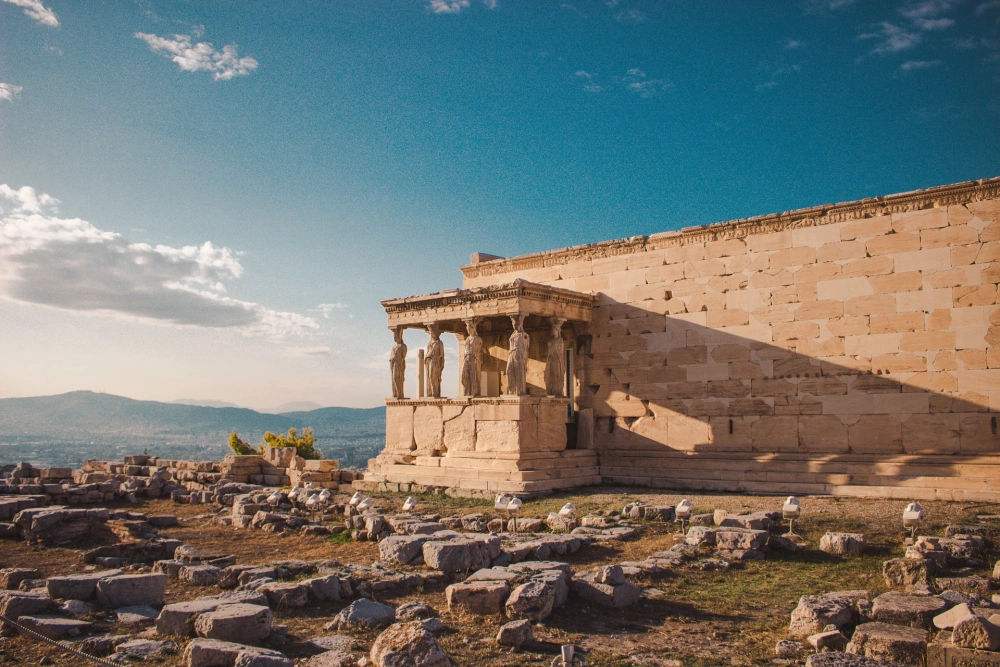India-Canada Standoff: Khalistan Not an Issue in Today’s Punjab
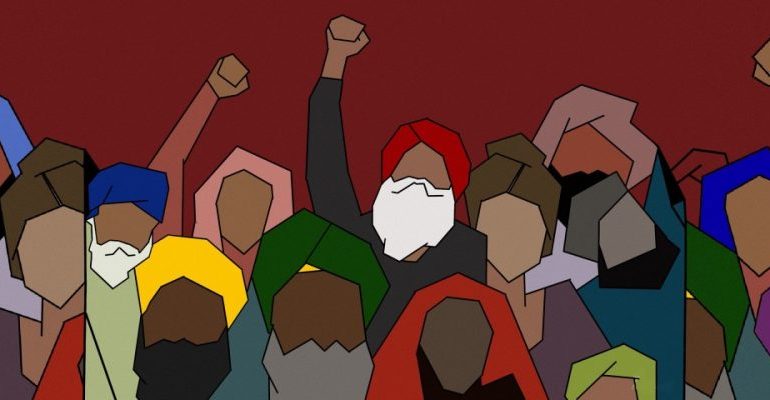
Jalandhar: With India and Canada’s diplomatic relations having deteriorated sharply in the wake of Canadian Prime Minister Justin Trudeau’s claims that “Indian agents” were behind the killing of prominent Sikh leader Hardeep Singh Nijjar, the Khalistan issue has surged to centre stage globally.
But while a section of Sikhs abroad may still harbour the idea of Khalistan, back home in Punjab, peoples’ concerns are confined to farming woes, moving abroad (particularly to Canada), dealing with the scourge of drugs, issues related to local developments and sometimes to do with local social and religious events.
The fact that Punjab’s stakes in Canada were high could be gauged from the fact that as per the 2021 Census, Canada’s population was around 37 million, out of which 1.4 million were of Indian origin. 770, 000 people were Sikh, which means around 2% of Canada’s population was from Punjab. The impact of the immigrant Punjabi community was such that even the signboards in Canada were in Punjabi language. By contrast, in the last 2011 census in India, Sikhs were just 1.7% and their population declined from the last census in 2001 by 0.2 percentage points.
The Wire looks at the factors behind the Khalistan narrative and how it has failed to find any traction in Punjab over the years. Even the recent protests led by the self-styled pro-Khalistan leader of ‘Waris Punjab De’, Amritpal Singh petered out within a matter of days. Amritpal along with his supporters was arrested in April this year and is currently lodged in Dibrugarh jail in Assam.
Talking to The Wire, Chandigarh based senior journalist Jagtar Singh who has written two books – Khalistan Struggle: A Non-Movement and Rivers on Fire: Khalistan Struggle discussed the India-Canada diplomatic row in the global perspective. “The information on India’s alleged interference in Canada has been shared by The Five Eyes, an intelligence alliance of Australia, New Zealand, the US and the UK and not just by Canada. When US President Joe Biden left India without addressing a press conference, he immediately landed in Vietnam and sharply attacked PM Modi. Everything is linked. The western world is closing up against Modi for certain reasons but when a PM says something on the floor of the house, he is supposed to have some credible information, on the basis of which they have reacted”, he said.

Gurpatwant Pannu. Photo: PTI/File
When asked on the Khalistan narrative abroad, Jagtar Singh rather posed a question to the Indian government over its failure to act against US based Sikhs for Justice leader Gurpatwant Singh Pannu.
He said, “Khalistanis have been active in Canada over the years. Even before Operation Bluestar, they were active in the UK, Canada and the US. But what is intriguing is that the face of Khalistan movement outside India is Pannu. How come we (India) are not seeking his extradition? India is blaming Canada but Pannu is based in the US. Even though several cases were filed against him, no action has been taken against him. India needs to explain this.”
Contrary to this, Jagtar said that India had announced a prize on the head of Hardeep Singh Nijjar but he was a public figure in Canada.
“There are some contradictions. We have been claiming that the Khalistan issue has phased out but it has come to the centre stage again. India has always approached this issue as a law-and-order problem but if it was so then why does this sentiment continue to prevail?” he questioned.
Khalistan not an issue in Punjab:
On the Khalistan issue not finding any traction in Punjab over years, the senior journalist said, “Khalistan was never an issue in the democratic domain. Even the SAD used to oppose the Khalistanis but the movement was there. The Indian government should take it as a political challenge. The Khalistan struggle needs closure because that sense of alienation among the Sikhs is continuing. Almost every third family in Punjab was settled in Canada now or for that matter other countries abroad. Why is India silent on such a sensitive matter?”
Listing major reasons, he said it was the fear of the level of state oppression, UAPA and NSA cases, which stops people from even talking about Khalistan. “Here people are put behind bars whereas in the west, they allow open discussion. People do not even talk about it. Let us not forget that Sikhs are the only people who ruled this region at one point of time. That sentiment of being the rulers always remains. Having sentiments is one thing and demanding a separate state is an altogether different subject. In the West, we have the example of Scotland and Quebec, where referendums have been held but that was not the case in India”, he added.
The senior journalist also shared how he tried to get information through the Right to Information Act (RTI) from Punjab, central government and the Indian Army, when he was writing his second book. “I even failed to get the copy of the file on who requisitioned the Army but the government never shared. The government should come out with the entire information”, he said.
Notably, in the run up to the Punjab Assembly Elections in 2022, the Bhartiya Janta Party (BJP) while releasing its election manifesto announced the constitution of a ‘Truth and Reconciliation Commission’, to address the grievances of the victims, who were seeking justice and announced a compensation of Rs 5 lakh each.
Even then SAD president Parkash Singh Badal had also announced a similar commission in their election manifesto in 1997, which ended up as a mere lip service while the simmering discontent within the community kept growing.

In this file photo, dated April 26, 2019, Prime Minister Narendra Modi is seen with Shiromani Akali Dal leader Parkash Singh Badal, Home Minister Amit Shah and Bihar CM Nitish Kumar in Varanasi. Photo: PTI/File
Former Sociologist calls Khalistan a non-issue:
Former Head of Department of Sociology from Panjab University, Chandigarh Professor Manjit Singh categorically ruled out any pro-Khalistan sentiment in Punjab. “Khalistan is not an issue in Punjab. It was never a public issue at all. But, yes with the recent standoff between India-Canada, it has become a global and political issue. The fact is that there is a difference between what the East and West practices in terms of its laws and rights. Whether it was Amritpal Singh’s issue, the killing of Paramjit Singh Panjwar in Pakistan, Avtar Singh Khanda in the UK, Hardeep Singh Nijjar or diplomatic tension with UK or Canada, there are no takers for Khalistan.”
The sociologist emphasised that Punjab has always remained a peaceful state but Punjabis stakes were high in Canada. “The onus is on the Canadian government now to provide evidence. At the same time, Indian government should handle this issue sensibly and delicately, as lakhs of students, working class and the elderly were residing in Canada through one or the other immigration program”, he said, adding that if a section of people feel strongly for Khalistan, they can do it either in Canada or in the UK.
SGPC on India-Canada standoff:
The Shiromani Gurdwara Parbhandak Committee (SGPC) president Harjinder Singh Dhami also issued a statement stating that the governments of India and Canada should adopt an agenda of serious consideration instead of accusations. “In the murder case of Canada based Sikh Hardeep Singh Nijjar, the expelling of a diplomatic officer of India by the Canadian government after allegations were levelled against him raises many questions’ ‘, he said.
“Sikhs have always kept their presence and existence high in the country as well as in the whole world with their hardworking nature and intellectual strength, but despite this, Sikhs always have to struggle for their rights. It is the responsibility of the government of the country to adopt a sincere approach regarding such matters related to the Sikhs in India and abroad and not to allow an atmosphere of distrust among the community members”, he added.
Sikh radical outfit Dal Khalsa questioned silence of Indian government over Gurpatwant Singh Pannu’s role:
On the India-Canada standoff over the issue of Khalistan, Kanwarpal Singh from Dal Khalsa, a Sikh radical group, told The Wire that this was likely to happen.
“For the last six to seven years, the Modi government was after the Trudeau government over the issue of Khalistan. So much so that Outlook, one of the leading magazines of India carried a cover page story on Canadian Prime Minister Justin Trudeau as a Khalistan supporter some years ago. The India-Canada row over Khalistan narrative was bound to reach climax sooner or later. For once at least Justin Trudeau brought the issue of extrajudicial killings on a global platform. We have been raising our voices against this for a long time”, he said.
Taking a jibe, the Dal Khalsa leader wondered as to why Narendra Modi doesn’t ask Joe Biden to not allow the activities of Pannu on American soil, “after all Pannu is a US citizen.” Blaming the PM for adopting double standards, he said Pannu and his team are active in US too as they are in Canada, but that the target is Trudeau and his government. He said the Modi dispensation has always adopted an indifferent and intolerant approach towards Trudeau and the situation has reached a critical juncture.
The Dal Khalsa leader said the Modi dispensation fails to understand and acknowledge that UK and Canada “allows the people of Scotland and Quebec enough space to speak up and express their aspirations for independence.”
“The countries that allow their own “separatists” to function democratically, how can they deny the same right to separatists of other country?” he asked.
However, when asked that there were no takers for Khalistan narrative in Punjab as compared to the west, Kanwarpal Singh said, “People are afraid of the Indian government. They enjoy freedom of expression in the west. In fact, whatever is happening in terms of Khalistan ideology on the foreign land was a reflection of the incidents that have taken place in Punjab.”

Sikh youth flash swords and raise slogans about Khalistan while taking a round of the Golden Temple in Amritsar on the occasion of anniversary of Operation Bluestar in 2015. Photo: PTI/File
Farm protests, not Khalistan
The three farm bills, suddenly brought in without consultation or a proper vote in the Lok Sabha in September 2020, led to widespread protests on the streets. The farmers’ protests finally forced Modi himself to announce their withdrawal. But before caving, the union government and BJP leaders and supporters on social media, went all the way to suggest and explicitly tar the protests with being inspired by Khalistan. Comments by popstar Rihanna, protesting widespread internet shutdowns that followed in the wake of farm protests were also given given a Khalistani and anti-national twist.
Also read: Farmers’ Protest: Despite Rightwing Propaganda, ‘Khalistani’ Angle Finds Little Traction
But despite concerted efforts to defame farmers protesting against the three agriculture laws by labelling them ‘Khalistanis’, as reported by The Wire, this got no traction among the general public. On the other hand, more people came out in support of the farmers.
When the Supreme Court put the three farm laws “on hold” in January 2021, the government tried to argue in the hearing, that ”Khalistanis” had infiltrated the protests.
The Supreme Court asked the then-Attorney General, KK Venugopal to file an affidavit to that effect. The then-AG said “he would do so by tomorrow along with inputs from the Intelligence Bureau (IB)”, reported NDTV.
There are concerns that political opposition to the BJP’s nearly decade-long centralising and Hindutva politics in Punjab, as in other states, be neither confused nor deliberately conflated with a sentiment for Khalistan.


